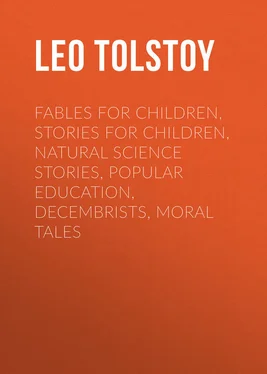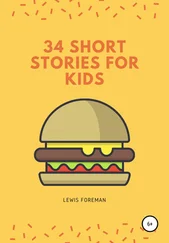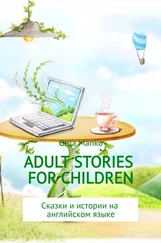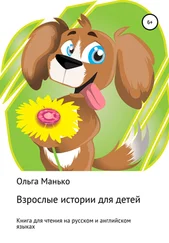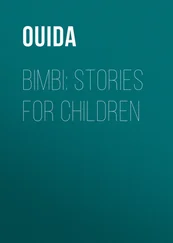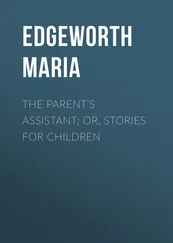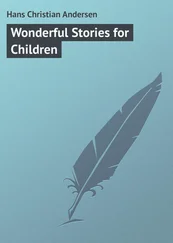Leo Tolstoy - Fables for Children, Stories for Children, Natural Science Stories, Popular Education, Decembrists, Moral Tales
Здесь есть возможность читать онлайн «Leo Tolstoy - Fables for Children, Stories for Children, Natural Science Stories, Popular Education, Decembrists, Moral Tales» — ознакомительный отрывок электронной книги совершенно бесплатно, а после прочтения отрывка купить полную версию. В некоторых случаях можно слушать аудио, скачать через торрент в формате fb2 и присутствует краткое содержание. Жанр: Русская классическая проза, на английском языке. Описание произведения, (предисловие) а так же отзывы посетителей доступны на портале библиотеки ЛибКат.
- Название:Fables for Children, Stories for Children, Natural Science Stories, Popular Education, Decembrists, Moral Tales
- Автор:
- Жанр:
- Год:неизвестен
- ISBN:нет данных
- Рейтинг книги:5 / 5. Голосов: 1
-
Избранное:Добавить в избранное
- Отзывы:
-
Ваша оценка:
- 100
- 1
- 2
- 3
- 4
- 5
Fables for Children, Stories for Children, Natural Science Stories, Popular Education, Decembrists, Moral Tales: краткое содержание, описание и аннотация
Предлагаем к чтению аннотацию, описание, краткое содержание или предисловие (зависит от того, что написал сам автор книги «Fables for Children, Stories for Children, Natural Science Stories, Popular Education, Decembrists, Moral Tales»). Если вы не нашли необходимую информацию о книге — напишите в комментариях, мы постараемся отыскать её.
Fables for Children, Stories for Children, Natural Science Stories, Popular Education, Decembrists, Moral Tales — читать онлайн ознакомительный отрывок
Ниже представлен текст книги, разбитый по страницам. Система сохранения места последней прочитанной страницы, позволяет с удобством читать онлайн бесплатно книгу «Fables for Children, Stories for Children, Natural Science Stories, Popular Education, Decembrists, Moral Tales», без необходимости каждый раз заново искать на чём Вы остановились. Поставьте закладку, и сможете в любой момент перейти на страницу, на которой закончили чтение.
Интервал:
Закладка:
"Don't ride any more, sir! Get down! What use is there in torturing the horse?"
I felt offended, and said:
"But I have not had a ride yet. Just watch me gallop! Please, give me a good-sized switch! I will heat him up."
Then the valet shook his head, and said:
"Oh, sir, you have no pity; why should you heat him up? He is twenty years old. The horse is worn out; he can barely breathe, and is old. He is so very old! Just like Pímen Timoféich. You might just as well sit down on Timoféich's back and urge him on with a switch. Well, would you not pity him?"
I thought of Pímen, and listened to the valet's words. I climbed down from the horse and, when I saw how his sweaty sides hung down, how he breathed heavily through his nostrils, and how he switched his bald tail, I understood that it was hard for the horse. Before that I used to think that it was as much fun for him as for me. I felt so sorry for Raven that I began to kiss his sweaty neck and to beg his forgiveness for having beaten him.
Since then I have grown to be a big man, and I always am careful with the horses, and always think of Raven and of Pímen Timoféitch whenever I see anybody torture a horse.
HOW I LEARNED TO RIDE
When I was a little fellow, we used to study every day, and only on Sundays and holidays went out and played with our brothers. Once my father said:
"The children must learn to ride. Send them to the riding-school!"
I was the youngest of the brothers, and I asked:
"May I, too, learn to ride?"
My father said:
"You will fall down."
I began to beg him to let me learn, and almost cried. My father said:
"All right, you may go, too. Only look out! Don't cry when you fall off. He who does not once fall down from a horse will not learn to ride."
When Wednesday came, all three of us were taken to the riding-school. We entered by a large porch, and from the large porch went to a smaller one. Beyond the porch was a very large room: instead of a floor it had sand. And in this room were gentlemen and ladies and just such boys as we. That was the riding-school. The riding-school was not very light, and there was a smell of horses, and you could hear them snap whips and call to the horses, and the horses strike their hoofs against the wooden walls. At first I was frightened and could not see things well. Then our valet called the riding-master, and said:
"Give these boys some horses: they are going to learn how to ride."
The master said:
"All right!"
Then he looked at me, and said:
"He is very small, yet."
But the valet said:
"He promised not to cry when he falls down."
The master laughed and went away.
Then they brought three saddled horses, and we took off our cloaks and walked down a staircase to the riding-school. The master was holding a horse by a cord, and my brothers rode around him. At first they rode at a slow pace, and later at a trot. Then they brought a pony. It was a red horse, and his tail was cut off. He was called Ruddy. The master laughed, and said to me:
"Well, young gentleman, get on your horse!"
I was both happy and afraid, and tried to act in such a manner as not to be noticed by anybody. For a long time I tried to get my foot into the stirrup, but could not do it because I was too small. Then the master raised me up in his hands and put me on the saddle. He said:
"The young master is not heavy, – about two pounds in weight, that is all."
At first he held me by my hand, but I saw that my brothers were not held, and so I begged him to let go of me. He said:
"Are you not afraid?"
I was very much afraid, but I said that I was not. I was so much afraid because Ruddy kept dropping his ears. I thought he was angry at me. The master said:
"Look out, don't fall down!" and let go of me. At first Ruddy went at a slow pace, and I sat up straight. But the saddle was sleek, and I was afraid I would slip off. The master asked me:
"Well, are you fast in the saddle?"
I said:
"Yes, I am."
"If so, go at a slow trot!" and the master clicked his tongue.
Ruddy started at a slow trot, and began to jog me. But I kept silent, and tried not to slip to one side. The master praised me:
"Oh, a fine young gentleman, indeed!"
I was very glad to hear it.
Just then the master's friend went up to him and began to talk with him, and the master stopped looking at me.
Suddenly I felt that I had slipped a little to one side on my saddle. I wanted to straighten myself up, but was unable to do so. I wanted to call out to the master to stop the horse, but I thought it would be a disgrace if I did it, and so kept silence. The master was not looking at me and Ruddy ran at a trot, and I slipped still more to one side. I looked at the master and thought that he would help me, but he was still talking with his friend, and without looking at me kept repeating:
"Well done, young gentleman!"
I was now altogether to one side, and was very much frightened. I thought that I was lost; but I felt ashamed to cry. Ruddy shook me up once more, and I slipped off entirely and fell to the ground. Then Ruddy stopped, and the master looked at the horse and saw that I was not on him. He said:
"I declare, my young gentleman has dropped off!" and walked over to me.
When I told him that I was not hurt, he laughed and said:
"A child's body is soft."
I felt like crying. I asked him to put me again on the horse, and I was lifted on the horse. After that I did not fall down again.
Thus we rode twice a week in the riding-school, and I soon learned to ride well, and was not afraid of anything.
THE WILLOW
During Easter week a peasant went out to see whether the ground was all thawed out.
He went into the garden and touched the soil with a stick. The earth was soft. The peasant went into the woods; here the catkins were already swelling on the willows. The peasant thought:
"I will fence my garden with willows; they will grow up and will make a good hedge!"
He took his axe, cut down a dozen willows, sharpened them at the end, and stuck them in the ground.
All the willows sent up sprouts with leaves, and underground let out just such sprouts for roots; and some of them took hold of the ground and grew, and others did not hold well to the ground with their roots, and died and fell down.
In the fall the peasant was glad at the sight of his willows: six of them had taken root. The following spring the sheep killed two willows by gnawing at them, and only two were left. Next spring the sheep nibbled at these also. One of them was completely ruined, and the other came to, took root, and grew to be a tree. In the spring the bees just buzzed in the willow. In swarming time the swarms were often put out on the willow, and the peasants brushed them in. The men and women frequently ate and slept under the willow, and the children climbed on it and broke off rods from it.
The peasant that had set out the willow was long dead, and still it grew. His eldest son twice cut down its branches and used them for fire-wood. The willow kept growing. They trimmed it all around, and cut it down to a stump, but in the spring it again sent out twigs, thinner ones than before, but twice as many as ever, as is the case with a colt's forelock.
And the eldest son quit farming, and the village was given up, but the willow grew in the open field. Other peasants came there, and chopped the willow, but still it grew. The lightning struck it; but it sent forth side branches, and it grew and blossomed. A peasant wanted to cut it down for a block, but he gave it up, it was too rotten. It leaned sidewise, and held on with one side only; and still it grew, and every year the bees came there to gather the pollen.
Читать дальшеИнтервал:
Закладка:
Похожие книги на «Fables for Children, Stories for Children, Natural Science Stories, Popular Education, Decembrists, Moral Tales»
Представляем Вашему вниманию похожие книги на «Fables for Children, Stories for Children, Natural Science Stories, Popular Education, Decembrists, Moral Tales» списком для выбора. Мы отобрали схожую по названию и смыслу литературу в надежде предоставить читателям больше вариантов отыскать новые, интересные, ещё непрочитанные произведения.
Обсуждение, отзывы о книге «Fables for Children, Stories for Children, Natural Science Stories, Popular Education, Decembrists, Moral Tales» и просто собственные мнения читателей. Оставьте ваши комментарии, напишите, что Вы думаете о произведении, его смысле или главных героях. Укажите что конкретно понравилось, а что нет, и почему Вы так считаете.
